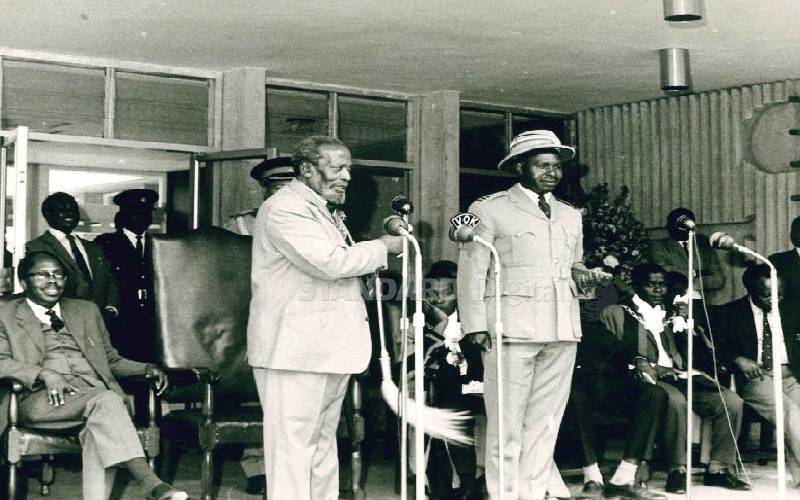×
The Standard e-Paper
Stay Informed, Even Offline

President Mzee Jomo Kenyatta is seen introducing the PC for Rift Valley Province Simeon Nyachae. [File, Standard]
Simeon Nyachae joined the Civil service as Revenue Clerk at the District Commissioner’s office in Kisii in 1954 after serving as an untrained teacher at Kegati Primary School following completion of his Secondary School Education at Kisii High School.